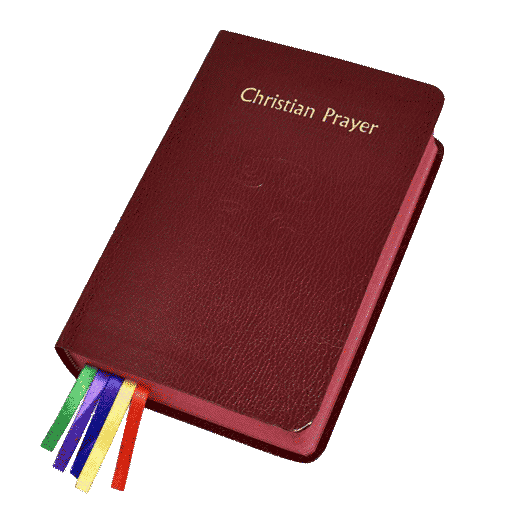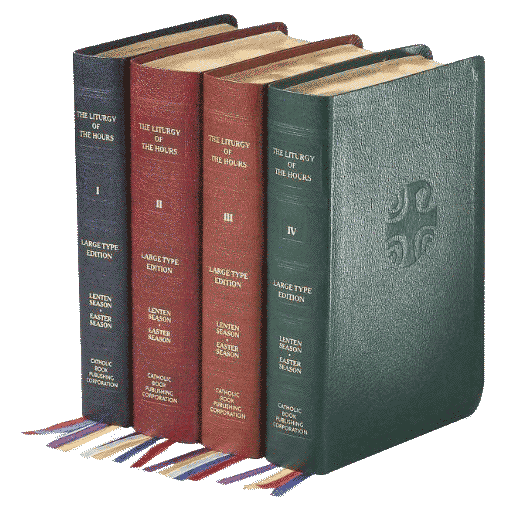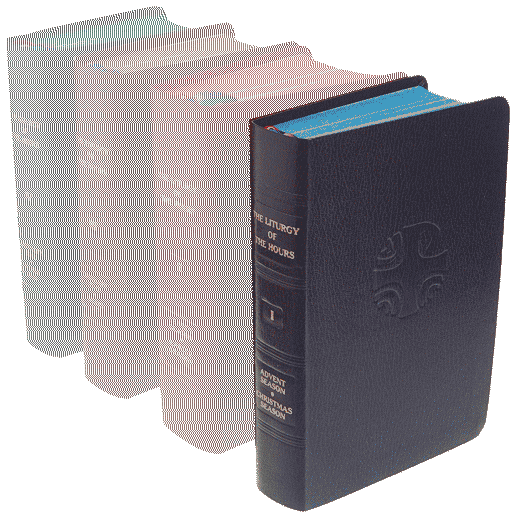Liturgy of the Hours for January 13
About Today for Saturday after Epiphany or St. Hilary, B & D or Blessed Virgin Mary
Please Note
This is the Liturgy of the Hours for January 13. Your local date is .
![About Today - Illustration from the Nuremberg Chronicle By Michel Wolgemut, Wilhelm Pleydenwurff (Text: Hartmann Schedel) (scan from original book) [Public domain], via Wikimedia Commons](https://upload.wikimedia.org/wikipedia/commons/4/45/Nuremberg_chronicles_f_131r_3..jpg)
January 13
Saint Hilary, Bishop and Doctor of the Church
Optional Memorial
Saint Hilary was born at Poitiers about the end of the 3rd century A.D. His parents were pagans of distinction. He received a good education, including some knowledge of Greek. He studied, later on, the Old and New Testament writings, with the result that he abandoned his Neo-Platonism for Christianity, and with his wife and his daughter (traditionally named as Saint Abra) received the sacrament of baptism.
So great was the respect in which he was held by the citizens of Poitiers that about 353, although still a married man, he was unanimously elected bishop (clerical celibacy was not required by the church until the late Middle Ages). At that time Arianism was threatening to overrun the Western Church; to repel the disruption was the great task which Hilary undertook. One of his first steps was to secure the excommunication, by those of the Gallican hierarchy who still remained orthodox, of Saturninus, the Arian bishop of Arles and of Ursacius and Valens, two of his prominent supporters.
About the same time, he wrote to Emperor Constantius II a remonstrance against the persecutions by which the Arians had sought to crush their opponents. His efforts were not at first successful, for at the synod of Biterrae (Béziers), summoned in 356 by Constantius with the professed purpose of settling the longstanding disputes, Hilary was, by an imperial rescript, banished to Phrygia, where he spent nearly four years in exile.
He continued to govern his diocese; while he found leisure for the preparation of two of the most important of his contributions to dogmatic and polemical theology: the De synodis or De fide Orientalium, an epistle addressed in 358 to the Semi-Arian bishops in Gaul, Germany and Britain, expounding the true views (sometimes veiled in ambiguous words) of the Eastern bishops on the Nicene controversy; and the De trinitate libri XII, composed in 359 and 360, in which, for the first time, a successful attempt was made to express in Latin the theological subtleties elaborated in the original Greek. The former of these works was not entirely approved by some members of his own party, who thought he had shown too great a forbearance towards the Arians; he replied to their criticisms in the Apologetica ad reprehensores libri de synodis responsa.
He was occupied for two or three years in combating Arianism within his diocese; but in 364, extending his efforts once more beyond Gaul, he impeached Auxentius, bishop of Milan, and a man high in the imperial favour, as heterodox. Summoned to appear before Emperor Valentinian I at Milan and there maintain his charges, Hilary had the mortification of hearing the supposed heretic give satisfactory answers to all the questions proposed; nor did his denunciation of the metropolitan as a hypocrite save himself from an ignominious expulsion from Milan.
In 365 he published the Contra Arianos vel Auxentium Mediolanensem liber, in connection with the controversy; and also (but perhaps at a somewhat earlier date) the Contra Constantium Augustum liber, in which he pronounced that lately-deceased emperor to have been the Antichrist, a rebel against God, “a tyrant whose sole object had been to make a gift to the devil of that world for which Christ had suffered.”
Hilary is sometimes regarded as the first Latin Christian hymnwriter, but none of the compositions assigned to him is indisputable.
The later years of his life were spent in comparative quiet, devoted in part to the preparation of his expositions of the Psalms (Tractatus super Psalmos), for which he was largely indebted to Origen; of his Commentarius in Evangelium Matthaei, an allegorical exegesis of the first Gospel; and of his no longer extant translation of Origen’s commentary on Job.
While he thus closely followed the two great Alexandrians, Origen and Athanasius, in exegesis and Christology respectively, his work shows many traces of vigorous independent thought.
Towards the end of his episcopate and with his encouragement by Martin, the future bishop of Tours, founded a monastery at Ligugé in his diocese. He died in 368; no more exact date is trustworthy. [1]
[1] Summarized from en.wikipedia.org
Note: Optional Memorials and Commemorations are optional celebrations and, at present, we do not include content specific to these special days. This “About Today” is provided so that you can celebrate these Saints as you worship Christ.


Contribute to DivineOffice.org
Your contribution ensures this site will be around to serve thousands who use it daily to pray.
Contribute Monthly
A monthly recurring payment is not required, but your support ensures this site will be around to serve thousands who use it daily to pray. You can select the amount of your monthly contribution below, or you can select "custom amount" and set it in the next page.
Contribute One-Time
If you prefer not to commit to a monthly contribution right now, please consider a one-time contribution. You will be able to set any amount in the next page.
Having trouble with this form?
You can also contribute through PayPal from this page, or you can mail a check.
Divine Office Blog
News and Updates from our ministry
Mauro on October 11th, 2024at 7:20
Thank you everyone for your feedback, it allowed us to see what needs to be fixed or changed. We recently became aware, thanks to feedback from our visually impaired users, that zooming in on a... Continue reading
 Login to like (4)
Login to like (4)
Mauro on September 19th, 2024at 6:21
“For where two or three are gathered together in my name, there am I in the midst of them.” — Matthew 18:20 Dear Brothers and Sisters in Christ, We are happy to announce new features... Continue reading
 Login to like (10)
Login to like (10)
Mauro on August 6th, 2024at 7:36
Dear Brothers and Sisters in Christ, Today, we celebrate a remarkable milestone in our journey of faith and devotion. On August 6th, 2006, our very first Catholic website and podcast series went live. Eighteen years... Continue reading
 Login to like (22)
Login to like (22)
Monica on June 13th, 2024at 9:19
Dear Community, The United States Conference of Catholic Bishops (USCCB) is set to gather on June 12-14 for their Spring Plenary Assembly, where they will vote on, among other things, the texts to be included... Continue reading
 Login to like (54)
Login to like (54)
Get the DivineOffice App!

Pray always and everywhere with our Award-Winning Liturgy of the Hours app for iPhone, iPad, Android and Kindle Fire. NOW FREE!



Ratings and Reviews
Our DivineOffice app is rated 4.9 out of 5, based on over 2,400 ratings and won the About.com Best Catholic App Award for 3 years in a row.

Recommended Books
Support us by starting your amazon shopping by clicking on this link.



 Cancel
Cancel






















 Prayers
Prayers Community
Community Globe
Globe Donate
Donate Join
Join Login
Login More
More
Pray anywhere
I have prayed the Divine Office for many years. [...] When I discovered this app, all of my concerns of ribbon placement were gone. Having the Divine Office on my phone is absolutely the best thing ever! The sense of community is so wonderful as I see how many others are praying at the same time as myself. [...] Now I don’t need to turn a lamp on as I use to when I used the Office printed volumes. It is such a blessing to have the Divine Office in my pocket. Many times I’ve been sitting in a doctor’s waiting room at the time of Mid Morning prayer. It is so calming of any worries to pull out my phone, open the app, and be able to connect with Our Lord at those times I need Him most. I don’t use the audio version much but the few times I’ve traveled, it is so comforting to not have to skip the Office in order to keep my hands on the steering wheel and my eyes in the road. I recommend this app to friends all the time, especially to those who’d like to pray the Office but feel intimidated by the size of the printed version and getting the ribbons placed properly. Thank you for developing this app. It is my constant companion.
SheezyOCon October 13, 2021
Super helpful
I have only been introduced to the divine office prayers two times before I downloaded this app. It is laid out in a way that is very easy to understand, and there is an audio option that will say all of the prayers. There is an option to set reminders throughout the day. I got this because, I didn’t really know how to say the divine office, and I didn’t know what prayer books I needed to purchase to begin. During the shutting down of churches for covid :( this has been a wonderful resource. One cool feature is that you can tap on the “in prayer” link and see little specks of light around the globe lighting up in the area that someone else is praying. It’s so cool to see everyone praying with you and is a powerful reminder that we are all connected and unified in Christ’s mystical body.
tori6543588on May 5, 2020
Praying with the whole Church
I love this app! Since it is now free and no longer for sale, I made sure to donate the price of buying it, and then some. I have loved the Liturgy of the Hours for 25 years. But I always felt alone when I prayed it. With this app, I am connected to others! I use it in conjunction with my printed Christian Prayer volume. On other days, I cannot get to my book but with the app, I always have the prayers available. I have the printed calendar with my book, but I actually rely on this more for placing my ribbons. The audio is wonderful!! I often read out loud with it. I love that I can change the speed of the audio! I have found that 1.3 is good for me. Thank you, thank you, thank you for this app. Thank you for still supporting it. Thank you for updating the “one God,” to just “God” change in the prayers. My book still throws me off but your app is right! Highly recommend this. Many friends have it. THANK YOU!!
MommytoNFP2on June 12, 2022